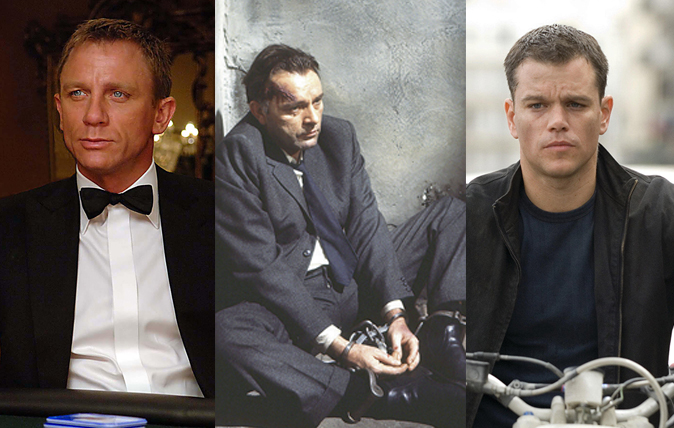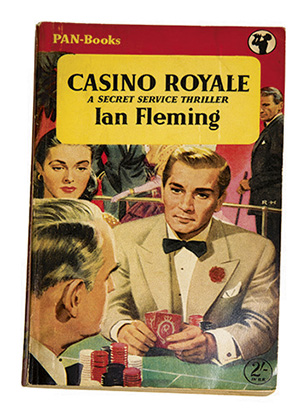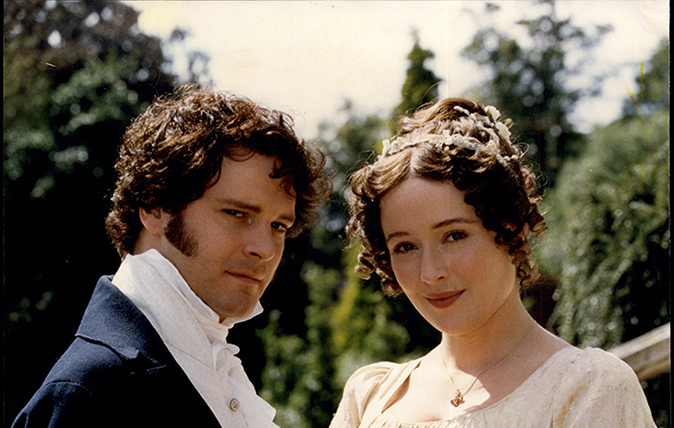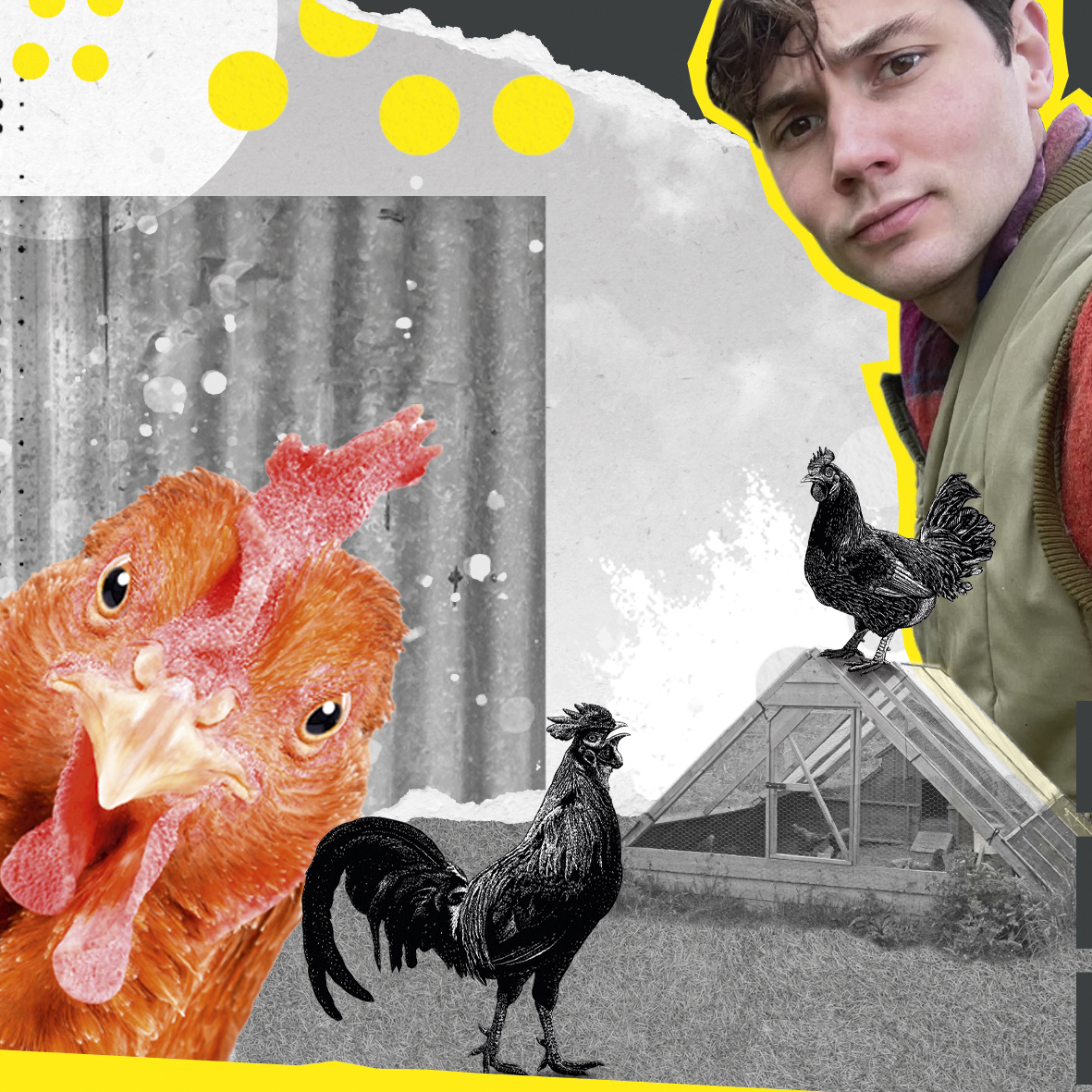Top 10 fictional spies, from Bond and Bourne to Hannay and Smiley
Cold War agent George Smiley is back after 25 years. To celebrate John le Carré’s new novel, Katy Birchall presents her top 10 literary spies.


Kimball O’Hara Kim, Rudyard Kipling (1901)
Kipling’s story follows an orphaned boy of Anglo-Irish origin living a ‘life as wild as that of the Arabian Nights’ in 1890s India. Recruited into the British Secret Service to play his part in the conflict between the British and Russians in Asia otherwise known as the ‘Great Game’, Kim travels the country with his spiritual mentor, a Tibetan lama, seeking out enemy agents. Mischievous, witty and with a natural flair for adventure, he makes a perfect young spy.
Jason Bourne The Bourne Identity, Robert Ludlum (1980)
‘In a way, he’s a functioning microcosm of us all. I mean, we’re all trying to find out who the hell we are, aren’t we?’ sighs Bourne’s psychiatrist. Fished out of the sea, riddled with bullets and with complete memory loss, Bourne’s mission is to uncover his identity while avoiding the CIA and a merciless assassin; luckily, he has a knack for survival. Multilingual, a good shot and trained to an exceptional level in martial arts, he also has extraordinary observational skills and a superior ability to remain clearheaded in tricky situations.
Alec Leamas The Spy Who Came in from the Cold, John le Carré (1963)
John le Carré admits that the inspiration for Leamas (left, played by Richard Burton) came when he saw a man in a raincoat walk tiredly into a bar at a London airport, haul out a handful of foreign change and order a large Scotch. Sent to infiltrate the East German intelligence service, Leamas is a bitter, cynical character trapped in the desolate, grey world of early-1960s espionage. Spies, he rants, are merely ‘people who play cowboys and Indians to brighten their rotten lives’. Many critics rate this book as the author’s finest work.
Unnamed The IPCRESS File, Len Deighton (1962)
The novel’s anonymous protagonist embarks on a rescue mission, told in first person narrative, and finds himself at the centre of a dangerous conspiracy. He’s working class, smart, impertinent, anti-Establishment and disarmingly funny.
‘Do it without complaint or sarcasm,’ says his superior about a new assignment. ‘It wouldn’t be the same,’ our hero responds. Len Deighton has stressed that, although his character, immortalised by Michael Caine in the film adaptation, has a lack of respect for authority, he is still a romantic hero.
James Wormold Our Man in Havana, Graham Greene (1958)
A Havana-based vacuum salesman agrees to spy for the British so that he can fund the extravagant lifestyle of his daughter, Milly. Unable to find information that might interest MI6, bumbling Wormold spices things up by selling them fake intelligence, but things become complicated when his reports start coming true. Greene’s wonderfully tongue-in-cheek thriller contains one of the most comical scenes of the genre, with the British analysing sketches of a Communist base in the mountains – which are, in fact, sketches of vacuum-cleaner parts.

James Bond Casino Royale, Ian Fleming (1953)
Enter 007, the poster boy of glamorous spy fiction. Royal Navy Commander James Bond made his first appearance in the short but thrilling Casino Royale, in which readers learnt of his trademark fondness for smoking, drinking and cars, as well as the fact that ‘something cold and ruthless’ lurks beneath his good looks. Bond’s cultural legacy is quite extraordinary, with 12 books by Fleming and the series continued by other authors, 24 films and an unparalleled global fascination with the actors who take on the role.
Sign up for the Country Life Newsletter
Exquisite houses, the beauty of Nature, and how to get the most from your life, straight to your inbox.
Richard Hannay The Thirty-Nine Steps, John Buchan (1915)
A skilled fisherman with an adventurous and self-sacrificing spirit, Hannay is a patriotic gentleman turned man on the run turned protector of significant British defence secrets – the perfect literary hero for a nation in the midst of the First World War.
Adolf Verloc The Secret Agent: A Simple Tale, Joseph Conrad (1907)
An overweight pornographic-shop owner who has ‘embraced indolence’, Verloc isn’t exactly what you’d expect of a double agent. Spying on anarchists for the Russians, he finds himself nervously taking on a more active role when they demand that he orchestrates a bombing on the Greenwich Observatory. Darkly satirical, Conrad’s novel is strikingly relevant today.
Charles Carruthers and Arthur Davies Riddle of the Sands: A Record of Secret Service, Erskine Childers (1903)
Childers’s only novel begins with government clerk Carruthers reluctantly accepting an invitation from his friend Davies to go on a yachting trip, but what starts as a holiday soon becomes an adventure as the pair uncover a German plot to invade England. They make an entertaining and effective espionage team – the adventurous and oafish Davies perfectly offsets the churlish, sophisticated Carruthers, who becomes more daring as his excitement and sense of patriotism grows.
George Smiley Call for the Dead, John le Carré (1961)
In the opening sentence, Smiley’s beautiful, aristocratic wife describes her husband as ‘breathtakingly ordinary’ – and so Mr le Carré introduced his most beloved of characters to the world. Toad-like, of a quiet disposition, mild-mannered, experienced and intelligent, Smiley fights his Cold War battles with none of Bond’s glamour or brawn, but with acute observation of human behaviour—he is often hailed as the perfect British spy.
John le Carré's new book, A Legacy of Spies is published this month (Penguin)

Credit: Alamy Stock Photo
Mother's Day wisdom: 11 priceless quotes from the world's wittiest women
We celebrate Mothering Sunday with this fantastic collection of wit and wisdom from some of the world's most successful women.

9 new cookery books to inspire a creative kitchen
This summer’s harvest of cookery books is satisfyingly unpredictable, but all the better for that, says Leslie Geddes-Brown.

Behind the names: The Austen characters you need to know
Feisty feminist heroines and dashing handsome heros.
-
 Jungle temples, pet snakes and the most expensive car in the world: Country Life Quiz of the Day, April 14, 2025
Jungle temples, pet snakes and the most expensive car in the world: Country Life Quiz of the Day, April 14, 2025Mondays's quiz tests your knowledge on English kings, astronomy and fashion.
By James Fisher
-
 Welcome to the modern party barn, where disco balls are 'non-negotiable'
Welcome to the modern party barn, where disco balls are 'non-negotiable'A party barn is the ultimate good-time utopia, devoid of the toil of a home gym or the practicalities of a home office. Modern efforts are a world away from the draughty, hay-bales-and-a-hi-fi set-up of yesteryear.
By Annabel Dixon
-
 Arthur Parkinson: I am a cleaner, security guard and matron to my happy hens
Arthur Parkinson: I am a cleaner, security guard and matron to my happy hensIn his first regular chicken-keeping column for ‘Country Life’, Arthur Parkinson introduces his brood and touches on the importance of good housekeeping.
By Arthur Parkinson
-
 Is anyone more superstitious than a sports star?
Is anyone more superstitious than a sports star?When it comes to worrying about omens and portents, nobody gets quite so worked up as our sportsmen and women.
By Harry Pearson
-
 The humble hazel dormouse — 'the flagship species of the health of our countryside'
The humble hazel dormouse — 'the flagship species of the health of our countryside'The sleepy and very sweet hazel dormouse is one of Britain's rarest mammals.
By Jack Watkins
-
 The grass is always greener: Follow in the footsteps of Sir Andy Murray and play in The Giorgio Armani Tennis Classic
The grass is always greener: Follow in the footsteps of Sir Andy Murray and play in The Giorgio Armani Tennis ClassicThere’s no better time of year than the summer grass court tennis season.
By Rosie Paterson
-
 You've gotta catch them all: Everything you need to know about London's giant Easter egg hunt
You've gotta catch them all: Everything you need to know about London's giant Easter egg huntFortnum & Mason, Anya Hindmarch and Chopard are among the companies that have lent a creative hand.
By Amie Elizabeth White
-
 The UK gets its first ‘European stork village’ — and it's in West Sussex
The UK gets its first ‘European stork village’ — and it's in West SussexAlthough the mortality rate among white storks can be up to 90%, the future looks rosy for breeding pairs in southern England.
By Rosie Paterson
-
 Can't you hear me S.O.S? Our treasured native dog breeds are at risk of extinction
Can't you hear me S.O.S? Our treasured native dog breeds are at risk of extinctionDo you know your Kerry blue terrier from your Lancashire heeler? A simple lack of publicity is often to blame for some of the UK's native dog breeds flying dangerously low under-the-radar.
By Victoria Marston
-
 The prestigious Saut Hermès was a tantalising taste of what to expect when Paris's Grand Palais reopens to the public in June
The prestigious Saut Hermès was a tantalising taste of what to expect when Paris's Grand Palais reopens to the public in JuneThe Grand Palais in Paris, France, has been closed to the public for extensive renovation works since 2021.
By Rosie Paterson